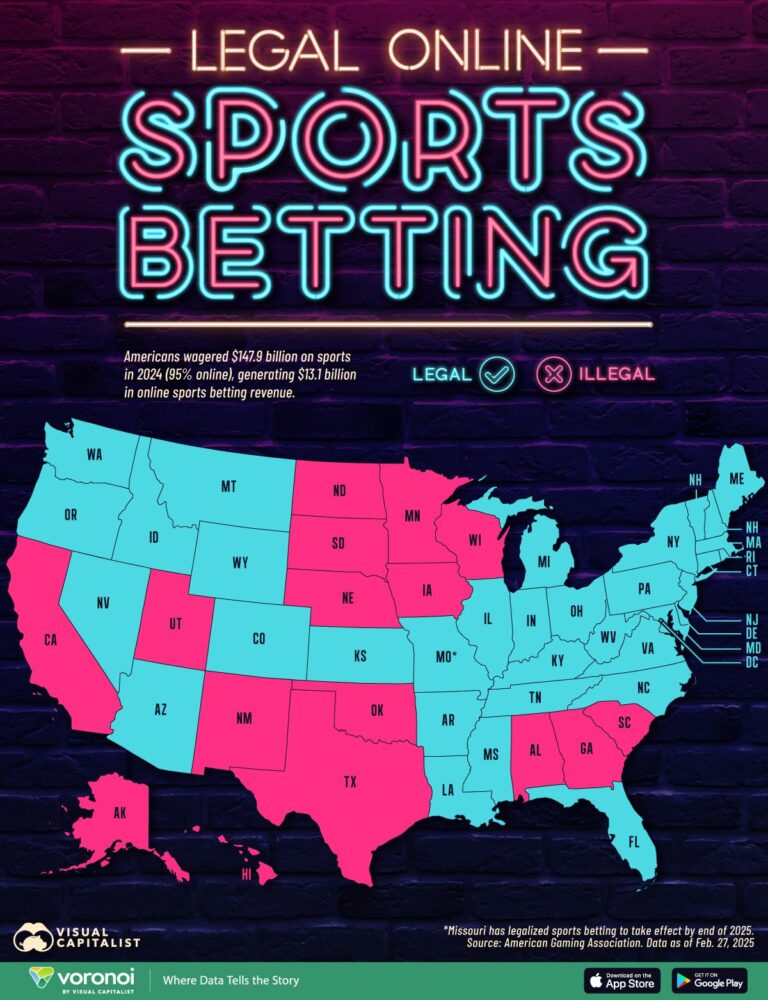Why Legal Sports Betting Hasn’t Eliminated the Black Market
Although sports betting has been legalized in numerous states across the U.S., the underground betting scene remains surprisingly resilient. Legal sportsbooks, once seen as the ultimate fix to unregulated gambling, continue to face fierce competition from illicit operators who thrive outside the law. This persistence raises important questions about the effectiveness of current regulations and the economic realities shaping the industry. This article explores the reasons behind the ongoing black market in sports betting and what this means for the future of legalized gambling.
Why Illegal Sports Betting Continues to Flourish
Despite the expansion of legal sports betting, many bettors still turn to illegal platforms. These underground operators often offer more favorable odds, higher betting limits, and a wider array of wagering options than their legal counterparts. Additionally, the financial burden of taxes and fees imposed on licensed sportsbooks can make legal betting less appealing, especially for high rollers. This dynamic complicates efforts by regulators and law enforcement to maintain the integrity and safety of the legal market.
Several key factors contribute to the black market’s endurance:
- Delayed launch of legal sportsbooks in some states restricts access for bettors.
- Complex and costly licensing processes discourage new entrants.
- Consumer skepticism about data privacy and fairness on regulated sites.
- Cross-jurisdictional betting loopholes exploited by illicit operators.
| Challenge | Effect |
|---|---|
| Limited Legal Availability | Drives bettors toward illegal options |
| High Regulatory Costs | Reduces competitiveness of legal sportsbooks |
| Slow Market Development | Delays consumer adoption |
| Trust Deficits | Encourages black market participation |
Key Drivers Behind the Black Market’s Strength
The black market’s appeal lies largely in its ease of access and anonymity. Illegal sportsbooks often bypass stringent identity verification and regulatory oversight, attracting bettors who prefer privacy or want to avoid cumbersome compliance checks. Moreover, these operators frequently provide more lucrative odds and enticing bonuses, appealing to those focused on maximizing short-term returns rather than regulatory protections.
Geographical inconsistencies in sports betting laws further exacerbate the issue. In many areas, legal frameworks have not kept pace with consumer demand, resulting in limited legal options and frustrating bettors. The patchwork nature of regulations, combined with difficult licensing requirements, leaves gaps that illicit operators readily exploit. The table below contrasts the legal and illegal markets, illustrating why some consumers gravitate toward the black market:
| Feature | Legal Sportsbooks | Black Market Operators |
|---|---|---|
| Identity Verification | Strict KYC and AML checks | Minimal or none |
| Odds Offered | Moderate and regulated | Often more favorable |
| Payment Methods | Bank transfers, credit/debit cards | Cryptocurrency, cash transactions |
| Geographical Reach | Restricted by state laws | Global and borderless |
| Consumer Protections | Robust and enforced | Weak or nonexistent |
Economic and Regulatory Barriers Facing Legal Sportsbooks
The initial promise of legalized sports betting was to redirect billions of dollars from illegal markets into regulated channels. However, steep taxation—often ranging from 20% to 35%—on licensed sportsbooks has made it difficult for legal operators to compete on price and bonuses. This tax burden forces sportsbooks to offer less attractive odds, pushing some bettors back toward unregulated alternatives where they can potentially win more.
Regulatory fragmentation also hampers market growth. Operators must navigate a maze of varying state laws, expensive licensing fees, and shifting compliance requirements, which create uncertainty and deter investment. Some of the most pressing regulatory challenges include:
- Inconsistent state regulations that limit cross-border betting and seamless user experiences.
- Strict advertising restrictions that reduce brand visibility and customer acquisition.
- Lengthy licensing procedures that delay market entry and responsiveness.
| Regulatory Challenge | Effect on Legal Market |
|---|---|
| High Tax Rates (20-35%) | Increased consumer costs; less competitive odds |
| Expensive Licensing | Barriers to entry; fewer operators |
| Marketing Limitations | Reduced customer engagement and growth |
Effective Approaches to Bolster Legal Betting and Suppress Illicit Markets
To diminish the black market’s foothold, regulators and industry participants must adopt a comprehensive strategy emphasizing strong enforcement and consumer awareness. Enhancing licensing standards and conducting regular compliance audits can discourage illegal operators. Collaboration between law enforcement and regulatory agencies, supported by advanced data analytics and real-time monitoring, is crucial for swiftly identifying and dismantling illicit betting networks.
Simultaneously, creating a legal betting environment that is both transparent and appealing to users is essential. Key tactics include:
- Optimizing user experience through intuitive, mobile-friendly platforms and clear, competitive odds.
- Offering responsible promotions that reward loyalty without encouraging excessive gambling.
- Launching educational initiatives to inform bettors about the risks of illegal betting and the protections available through legal channels.
| Strategy | Advantage | Example of Implementation |
|---|---|---|
| License Enforcement | Eliminates non-compliant operators | Routine audits and undercover compliance checks |
| Consumer Education | Decreases demand for illegal betting | Social media campaigns highlighting legal risks |
| Advanced Monitoring | Rapid detection of illicit activity | AI-powered analysis of betting patterns |
Conclusion: A Multifaceted Path Forward
The ongoing presence of the black market in sports betting underscores the complexity of eradicating illegal gambling through legalization alone. Economic pressures, regulatory inconsistencies, and consumer preferences all contribute to the challenge. To effectively combat illicit betting, stakeholders must implement a layered approach that combines rigorous enforcement, consumer education, and innovative oversight technologies. Legalization is a vital step, but without these complementary efforts, the black market will continue to pose a significant threat to the integrity and growth of the legal sports betting industry.







